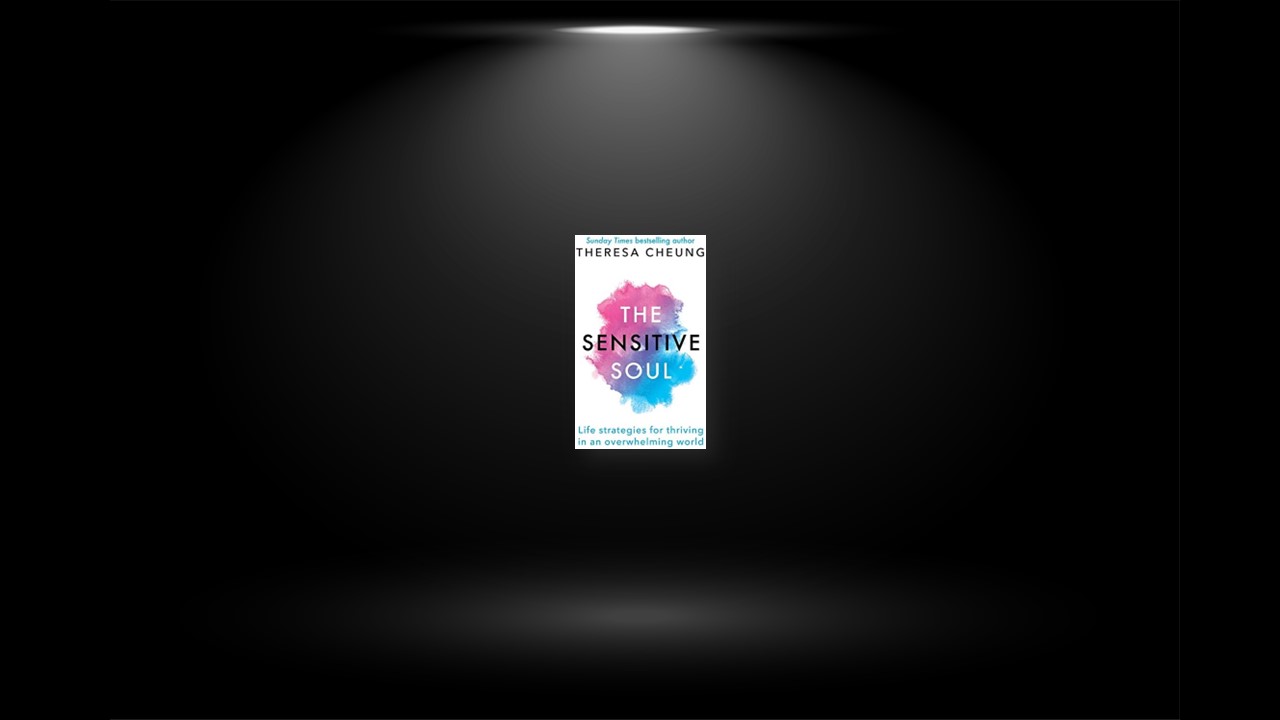Being Oh So Sensitive
Being sensitive means feeling things profoundly and for far longer than people generally consider to be ‘normal’. It means being a deep thinker who contemplates every possible outcome of a situation. It means responding emotionally rather than rationally to events, environments, images, sounds, scents or the feelings and the moods, words and actions of others. It means sensing invisible or subtle details that others don’t see or feel. It means being highly imaginative, empathetic beyond reason, intuitive beyond limits and having the ability to see similarities, patterns or the potential for connections rather than differences.
In essence, being sensitive means living your life with heightened awareness and emotional generosity. Around 20 percent of people live in a state of this constant high alert, and these are the people whom scientists and psychologists identify as highly sensitive. The rest of us don’t identify strongly as highly sensitive, but we will still experience moments of acute sensitivity because we are all born with the innate potential to be sensitive.
Blind Spots and Blessings
Sensitive people often have the uncanny ability to read others remarkably well. More often than not their intuition about what others are feeling, thinking, fearing or desiring is spot on. However, they aren’t nearly as accurate when it comes to understanding themselves and their own feelings, thoughts, fears and desires. Indeed, their lack of self-awareness is quite simply astonishing given how perceptive they are about others. Once they feel comfortable in their own skins, sensitive people have the ability to bring healing and do remarkable good in the world. The only thing holding them back is not understanding or valuing who they really are.
Your blind spots are your unconscious fears, habits, patterns, needs, truths and motives, among other things. In essence, they comprise what you can’t see about yourself. They contain what is hidden deep within you – things that, at some point in your life and for whatever reason, you didn’t wish to acknowledge, so you buried them. Perhaps you felt ashamed, or that you would be criticised, or that to reveal your true feelings would be dangerous in some way. Perhaps you thought you needed to conceal a perceived personality flaw or weakness. Whatever the reason you buried them, these aspects of yourself operate automatically in the dark. You don’t feel safe or comfortable acknowledging them, and you don’t want others to see them either.
Blind spots often have their roots in the beliefs or responses you learned as a child to help cope with your innate sensitivity or deal with specific challenges or traumas. So, most will have formed as a protective mechanism during your vulnerable childhood years, but over time, as your life moved forward, those beliefs or responses no longer served your best interests. You’ve grown out of them but they have become so ingrained that they remain a part of you. Beliefs or responses can become so unconscious that you persist in them regardless, even though they no longer protect you and now block your chances of success and happiness in life.
Unlocking the Sensitivity Code
Make a promise to yourself that you will follow these sensitivity solutions. Take these small but powerful steps every single day. Don’t think initially in terms of the rest of your life, because your conscious mind will rebel before you even start to experience the benefits. Allow yourself to make a choice to continue when the three weeks of incorporating these strategies in your life are over. Let the solutions prove to you that their benefits are real and it is in your best interests to keep going for the rest of your life.
Sensitivity Code 1: Look within
If you often feel that you don’t fit in or that there is something wrong or defective about you, if you worry that people will reject you for revealing your true feelings, if you often feel lonely in a crowded room or that you are too sensitive for this world, the chances are you have spent your life seeking validation externally rather than by looking deep within. You have likely looked to other people to give you a sense of belonging, to your work or career for a sense of meaning, to material things to make you feel safe.
Whenever you seek validation outside yourself, you are like a reed blowing in the wind, because external factors are outside your control. The only way to find true and lasting peace and joy, and the answers you are seeking, is to find them from the inside out. Happiness isn’t the result of achieving material goals but of finding inner peace. The problem is, many sensitive people are incredibly fearful of looking within themselves for answers because of the feelings of isolation and confusion they may encounter there.
Sensitivity Code 2: Grow up again
Childhood is the place where we learn lessons about love and what truly matters in life, and these lessons can last a lifetime. When unconditional love isn’t freely given by your parents and carers, you learn that love is conditional on what you do for others, rather than on who you are. Likewise, if you have been neglected by parents and carers, the lesson you learn is that you and your needs don’t matter.
If you grew up receiving conditional love, it is not surprising that you instinctively take on the role of people-pleaser in all your adult relationships, hoping to receive the love or acceptance you never got as a child. If you grew up being neglected, or worse still, abused, it is hardly surprising that you suffer from low self-esteem. And if you grew up being bullied or criticised because of your sensitive soul, it is no surprise you try to repress or hide your sensitivity and regard it as a weakness.
Sensitivity Code 3: Love being different
Sensitive souls often think they are weak, or too different from everyone else to ever really belong or be accepted. Because they tend to see the world through the eyes of other people, they experience low self-esteem and loss of personal identity. They spend their lives trying not to be seen as different. Although they are often the first people others turn to in times of crisis, they struggle to see their own value. Indeed, many sensitives suffer from what psychologists describe as ‘imposter syndrome’. This syndrome describes feeling that you are not the person others think you are and that any success is undeserved or not of your own making. You feel like an imposter in your own life.
To step into your own power, as a sensitive, you need to remind yourself on a daily basis that there is absolutely nothing wrong with being different. Being different does not mean being broken. Being different is good.
Sensitivity Code 4: Reach for the stars
If you’ve been applying the first three sensitivity solutions to your life, you may now be beginning to experience inner shifts. When you start to change on the inside, this will impact what is going on in your life on the outside. However, at this early stage you may find that instead of feeling empowered you feel even more vulnerable than before.
If this is the case, it is more important than ever that you keep unlocking your sensitivity code. You are undergoing a transformation, and change is always going to be unsettling. Keep going. You are experiencing the darkness before the dawn, the labour pains before the birth, perhaps even the ‘dark night of the soul’ that precedes every remarkable transformation.
Every person’s experience is different, and some people experience a darker transformation than others, but however you are experiencing it, rest assured that feeling conflicted and insecure at this point is where you need to be. It’s a sign that you are growing, and sometimes you may get growing pains. If you are tempted to run away, imagine how abandoned your inner child would feel. Find within yourself the courage to protect and stay with that child.
Sensitivity Code 5: Don’t believe it because you think it
Thoughts have tremendous power. They can impact our mood, our motivation, our health and well-being. But thoughts only have that power if we allow them to. Just because you think something does not mean it is true. Contrary to what you may have been led to believe, you are not what you think. If you think something negative, you don’t have to act on that negativity. Thoughts come and go. They emerge from your subconsciousness and can disappear as swiftly as they appeared.
Sensitive people tend to overidentify with their thoughts, assigning them a power over their lives they don’t need to have. They can also get into the habit of dwelling on negative things, judgements and anxieties. You need to recast yourself as the witness or observer of your thoughts. They are like a TV signal. You are not that signal. You are the TV that transmits them. Thoughts don’t make you feel unhappy. It is only when you start to believe them or identify with them that you suffer.


